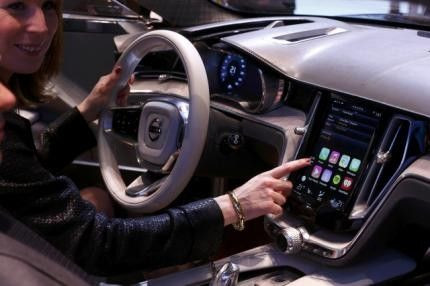The 'Internet of Things': Life Ahead Will Be Larger Than Smartphones, Tablets and PCs Combined

Smartphones and computer-linked weather stations are part of a bigger trend that affects the way we live within the next few years. Techies and scientists call it the "Internet of Things."
Internet of Things
The Internet of Things (IoT) usually describes the number of devices that will outstrip the number of Internet users. The Internet of Things will tell you whether the raw water in your community is suitable for drinking water, provides in-vehicle warnings of accidents or a roadwork that lie on the route ahead or if the building roof is about to collapse due to much snow. IoT is truly overwhelmingly serving.
The number of everyday and enterprise devices that will soon be connected to the Internet - from parking meters to home thermostats, will be huge.
We have 1.9 billion units of devices today and according to estimates, we will reach 9 billion by 2018 - the total number of all smartphones, tablets, smart TVs, PCs and wearables. In the consumer space, a lot of services and products already crossed over into the IoT such as home appliances, kitchen and lighting products.
The following are the top government and business applications for IoT:
Advertising and marketing - this category that might be about Internet-connected billboards will be one of the top three IoT categories like telecommuting support and smart factories.
Industrial uses - this includes Internet-managed assembly lines, connected factories and warehouses.
Intelligent traffic management systems - there will be $100 billion revenue by 2020 for congestion and toll-taking charges as well as $30 billion income from smart parking and space management.
Smart electricity grids - the type that adjusts the rates for energy usage during peak time as this will result to savings of about $200 to $500 billion per year by 2025.
Smart water systems and meters - putting sensors in water infrastructure such as a pump.
Waste management systems - the use of "pay as you throw" program which applies IoT to track those exceeding waste limits.
Inside or outside homes, your way of living is more than half influenced by the IoT such as a smartphone in your car that is capable of providing in-vehicle alerts of accidents or roadwork, and makes it possible to drive the car from one place to another without the need to touch the wheel. It will enormously interfere our lives - even the simplest ones like checking if your fridge is full and keep an inventory of what has been or has not been used.
Welcome to the future!





















